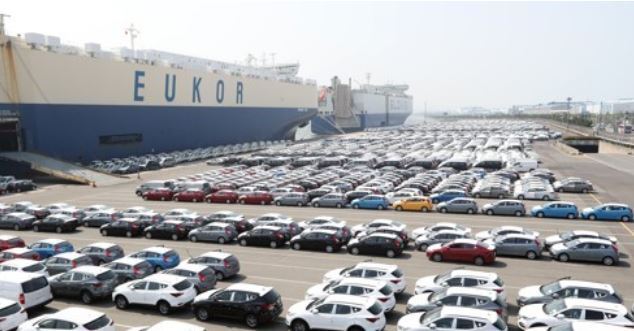South Korea's trade surplus with the United States fell sharply during the first 11 months of this year from a year earlier amid growing pressure from Washington, data showed Wednesday.
The US has demanded a revision to a free trade agreement with Seoul, which US President Donald Trump has called the deal a "job killer," citing the rising deficits in trade with South Korea.
The US side is expected to focus on the auto and steel sectors while South Korea has voiced opposition to further lowering barriers in the agricultural sector due to concerns about strong protests from local farmers and stockbreeders.

South Korea exported $63.3 billion worth of goods to the US from January to November and imported $46.3 billion from its close trading partner, adding up to a $17 billion trade surplus, according to figures provided by the Korea International Trade Association and the Ministry of Trade, Industry and Energy.
The number represents a 21.6 percent decline from the $21.7 billion tallied a year earlier.
Seoul's trade surplus with the US peaked at $25.8 billion in 2015.
South Korea's shipments to the US rose 4.3 percent this year from a year earlier, while imports from the US jumped 18.7 percent.
By item, shipments of wireless telecommunications equipment dropped 21.8 percent to $5.1 billion during the first 10 months of this year from the previous year due to an increase in the amount of production abroad.
Auto parts exports also suffered a 15.6 percent decline to $4.8 billion.
Shipments of semiconductor equipment shot up 130.6 percent and those of liquefied petroleum gas rose 68.8 percent. Imports of agricultural and livestock products, meanwhile, surged 21.2 percent and 18.4 percent to $3.9 billion and $2.3 billion, respectively. (Yonhap)










![[Hello India] Hyundai Motor vows to boost 'clean mobility' in India](http://res.heraldm.com/phpwas/restmb_idxmake.php?idx=644&simg=/content/image/2024/04/25/20240425050672_0.jpg&u=)








